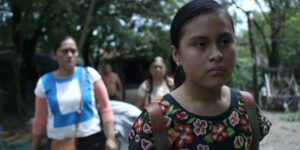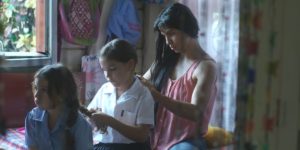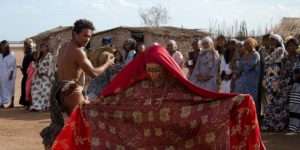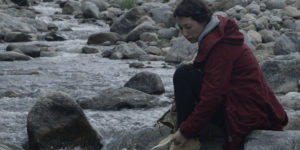presented by
The Center for Latin American and Caribbean Studies
April 16-22, 2021
Free Virtual Series
All films are available through the entire festival.
All films will be shown in their original language with English subtitles. You must register in order to gain access to the virtual festival and watch the films.
(Films are not rated; many include adult content.)
For more information: LAFSatUWM@gmail.com
LAFS 2021 programmer: EJ Basa
co-programmer: Lin Haggerty
The series is co-sponsored by the UWM Union Student Involvement and Union Cinema; the Provost’s Office; UWM Union Sociocultural Programming; the Sam and Helen Stahl Center for Jewish Studies; the International Business Center of the Lubar School of Business; The Queer Curatorial Fund of the UWM Department of Film, Video, Animation, and New Genres; Center for 21st Century Studies; Center for International Education; Electa Quinney Institute for American Indian Education; Honors College; Institute of World Affairs; Language Resource Center; Roberto Hernández Center; Sigma Delta Pi National Collegiate Hispanic Honor Society; UWM LGBTQ+ Resource Center; UWM Libraries; Women’s Resource Center; UWM Departments and Programs: African and African Diaspora Studies; Anthropology; Art History; Communication; Cultures and Communities; English; Film Studies; Film, Video, Animation and New Genres; French, Italian, and Comparative Literature (FICL); Geography; History; Latin American, Caribbean, and U.S. Latinx Studies (LACUSL), MA in Language, Literature and Translation (MALLT); Master of Sustainable Peacebuilding (MS); Political Science; Sociology; Spanish & Portuguese; Translation & Interpreting Studies; Urban Studies; Women’s and Gender Studies; and Colectivo Coffee.

Register to watch hereRegistrese para ver aquí |
Watch films hereVer las películas aquí |
Films/Películas
link
El ombligo de Guie’dani (Xquipi’ Guie’dani) (Guie’dani’s Navel)
Mexico, 2019, 119 min, Dir. Xavi Sala
Descripción en español abajo.
In a star-making performance, Sótera Cruz brings razor-sharp intensity to her portrayal of Guie’dani, a Zapotec girl determined to fight for her dignity.
Guie’dani is dragged to Mexico City by her mother to help in her work as a housekeeper for an upper-middle-class family. There, the subtle psychological subjugation inflicted by the white family functions as a metaphor for the oppression of the old world by the new. Yet, Guie’dani rejects the life of servitude and seeks her own identity through a friendship with another rebellious teen.
A striking contrast to Alfonso Cuarón’s Roma, Guie’dani’s Navel is a unique coming-of-age narrative exploring the racism inflicted on indigenous people in Mexico and the empowerment of a new generation that refuses to accept it silently.
Guie’dani, una niña indígena zapoteca, y su madre, entran a trabajar como empleadas domésticas para una familia de clase media acomodada de la Ciudad de México. La pequeña no se adapta, es conflictiva y se rebela. De FilmAffinity.
link
Yo niña (I Girl)
Argentina, 2018, 85 min, Dir. Natural Arpajou
Descripción en español abajo.
Based on the director’s autobiographical experiences, I Girl tells the story of Armonía, a little girl who lives with Pablo and Julia, who seem to be her parents, in an idyllic landscape of lakes, rivers, and forests in southern Argentina. They are neo-hippies, vegetarians, promiscuous, questioners of the system, and have problems with the law. They consider that deviating from the consumer society is a form of decontamination, although that means -among many other things- no schooling and scandalous reactions to a gifted Barbie doll.
But their existence is more precarious that it seems; their cabin has no light, gas, or running water, and they are underprepared for the life they envision for themselves. Armonía is often left to her own devices in a way that seems neglectful.
After a tragic incident forces them to leave their idyllic dwelling and actually interact with the bourgeoisie, Armonía’s world starts to gradually open up as she discovers concepts that notions she’d never experienced in her short life.
Featuring outstanding performances, the story of I Girl has been rarely seen in Latin American cinema. It explores contemporary and complex subjects without losing sight of its central character’s point-of-view, and questions the limits of what we are willing to sacrifice and risk for our ideals.
Una pareja se muda a la Patagonia escapando de las imposiciones de la sociedad capitalista moderna. Al principio, el lugar, la gente, la vida parece ser lo que ellos buscan. Un mundo nuevo alejado de todo. Pero pronto descubrirán que no todo es tan mágico ni tan simple, ni ellos están preparados para lidiar con esa vida. Pensaran en desistir. Volverán a la ciudad, pero ahí tampoco encajan: El lugar que dejaron atrás ya los ha modificado. Harán un nuevo intento, una verdad revelada, hará que todo tambalee más fuerte que nunca. Pero al atravesar esto, se harán más fuertes para continuar intentando una nueva vida. De FilmAffinity.
link
Perro Bomba
Chile/France, 2019, 80 min, Dir. Juan Cáceres
Descripción en español abajo.
Steevens is a young Haitian immigrant living a challenging, but somewhat stable life in Santiago de Chile: he has a construction job, a home, friends, and fun.
This precariously balanced life is disrupted when Junior, a childhood friend from Haiti, arrives in Chile seeking assistance from Steevens to establish himself. Junior has entered Chile without papers and doesn’t speak any Spanish. Steevens does everything he can to support his friend and even manages to get him a job with his employer. When an incident at their workplace erupts racial tensions and stokes a large anti-immigration sentiment in the city, Steveens loses his working documents. Now without a job, Steveens has to vacate his home and is left to wander the city, looking for a chance to restart his life beyond the margins of society.
Steevens es un joven haitiano con vida simple y estable en Chile: trabajo, casa, amistad y fiesta. Pero llega Junior y hace que Steevens golpee a su jefe. La noticia es viral y Steevens es repudiado por su comunidad, amigos y por todos. Steevens en busca de trabajo, hogar y apoyo en todo Santiago. De FilmAffinity.
link
El despertar de las hormigas (The Awakening of the Ants)
Costa Rica/Spain, 2019, 94 min, Dir. Antonella Sudasassi Furniss
Descripción en español abajo.
For thoughtful, demure young housewife Isa, life in a lush, postcard-perfect Costa Rican seaside village is far from anyone’s idea of a dream. She is being pressured by her intrusive and loudly opinionated in-laws to have another baby – a boy – even as her already cramped household struggles to stay afloat. She tends to the needs of her husband and two daughters while her own desires remain distant and ignored.
Isa finds herself suffocated by rigid gender roles and the cloistered, provincial thinking that comes with small-town life. Desperately imagining some other way of living—single, childless, desired—while growing increasingly tense towards those closest to her, Isa finds herself at a breaking point awakening to the possibilities of a life lived on her own terms, in this engrossing and intimate feature debut from writer/director Antonella Sudasassi Furniss.
Isa es modista y vive con su familia en un pequeño pueblo de Costa Rica. Su esposo Alcides desea que tengan un tercer hijo: un varón. Isa, sin embargo, no quiere otro embarazo. Quiere enfocarse en el trabajo y ya tiene más que suficiente en su vida con dos hijas. Hasta ahora, nunca ha cuestionado su papel dentro de la familia. Sin embargo, cuando se da cuenta de que Alcides no parece estar escuchando y persiste con su deseo de tener un tercer hijo, se da cuenta de que algo debe cambiar. De FilmAffinity.
link
Pajaros de verano (Birds of Passage)
Colombia/Mexico/Denmark, 2018, 125 min, Dirs. Ciro Guerra, Cristina Gallego
Descripción en español abajo.
ACADEMY AWARD® COLOMBIA’S SUBMISSION FOR BEST FOREIGN LANGUAGE FILM
Cristina Gallego and Ciro Guerra, the creative team behind Oscar®-nominated EMBRACE OF THE SERPENT return with this inspired mob epic for the ages — a completely fresh take on the origins of the Colombian drug trade, far from Narcos and Escobar, as told through the story of an indigenous Wayúu family.
In the 1970s, as an American-fueled marijuana boom hits Colombia, farmers quickly turn into seasoned businessmen starting a narco-trafficking era known as “la Bonanza Marimbera.”
In the Guajira desert, one indigenous Wayúu clan takes a leading role. Guided by matriarch Ursula Pushaina, the “Birds of Passage”—drug runners—face the constant risk of violence and incarceration from the outsiders in Northern Colombia. The cultural differences between the native population and the newcomers begin a brutal war that threatens to destroy the Wayúu way of life. As greed, passion, and honor blend together over the decades, the family’s unity, their lives, and their ancestral traditions are all put at stake.
A true story, the visually striking Birds of Passage is as much a thriller as it is an anthropological study on the consequences of outside influences to indigenous traditions.
Basada en una historia real que explica el origen del narcotráfico en Colombia, la película se sitúa en los años 70 cuando la juventud norteamericana abraza la cultura hippie y con ella a la marihuana. Esto provoca que los agricultores de la zona se conviertan en “empresarios” a un ritmo veloz. En el desierto de Guajira, una familia indígena Wayuu se ve obligada a asumir un papel de liderazgo en esta nueva empresa. La riqueza y el poder se combinan con una guerra fratricida que pondrá en grave peligro a su familia, a sus vidas y a sus tradiciones ancestrales. De FilmAffinity.
link
A cidade do futuro (The City of the Future)
Brazil, 2016, 75 min, Dirs. Marília Hughes and Cláudio Marques
Descripción en español abajo.
In Serra do Ramalho, Brazil, young teacher Milla finds herself pregnant by her colleague Gilmar. Gilmar is in a relationship with Igor, but Milla asserts that the baby will belong to all three of them. Despite some initial conflict between the three, and in defiance to their community’s reaction, they form an unconventional but remarkably uncomplicated family. Billed as the ‘city of the future’, Serra do Ramalho was constructed in the 1970s in order to rehouse thousands of citizens that had been forcefully relocated. The location forms an important backdrop for this elegant, gentle film which is full of hope for a new generation building their own family of the future.
Directors Cláudio Marques and Marília Hughes Guerreiro have boldly collaborated on this beautiful naturalistic film that shuns convention, embracing love in all its dazzling iterations.
Milla, Gilmar e Igor forman una familia fuera de lo común en Serra do Ramalho, al interior de Bahía. De FilmAffinity.
link
My Bolivia, Remembering What I Never Knew
Bolivia/United States, 2017, 58 min, Dir. Rick Tejada-Flores
Descripción en español abajo.
My Bolivia is a historic road trip to make sense of a family’s and a country’s past. A Latino filmmaker travels to Bolivia to to find the things his parents told him, and what they never said — the family’s slave-owning past, his grandfather the President’s role in Latin America’s bloodiest war, the relative who was one of the leaders of the Revolution, and connections with a notorious Nazi war criminal… all a far cry from growing up in California and a life as an an activist.
This patiently probing documentary traces the web of the Tejada clan from La Paz to Los Angeles, back to the Bolivian capital, and on to isolated rural countryside landscapes. As Tejada-Flores discovers through his on-camera exploration and perambulation, the story of the affluent, land-owning Tejada family intersects with the history of Bolivia in the 20th century in revealing and deeply uncomfortable ways. This unearthing of a shocking legacy, and how Tejada-Flores decides to portray it, gives this documentary a transcendently bittersweet ending.
El documentario es un viaje personal del director para entender mejor la historia de su familia y del país de Bolivia.
link
Un traductor (A Translator)
Cuba/Canada, 2018, 107 min, Dirs. Rodrigo Barriuso, Sebastián Barriuso
Descripción en español abajo.
ACADEMY AWARD® CUBA’S SUBMISSION FOR BEST FOREIGN LANGUAGE FILM
Based on the little-known true story of how twenty thousand Chernobyl victims were eventually treated in Cuba, Un Traductor unfolds as a tale at once historical and personal, brought to life in crisply shot, beautifully realized period detail of a Havana on the brink of economic crisis.
Havana, 1989: Russian literature professor Malin (Rodrigo Santoro, of Westworld fame) receives a mysterious note at the university with orders from the government sending him to a local hospital, where he learns he is expected to act as translator between Cuban doctors and the families of young patients from the Chernobyl disaster. Initially raging against his new role, Malin is forced to stay on. He eventually becomes deeply devoted to his patients. But while he becomes “king of the kids” at the hospital, his relationships with his pregnant wife and young son suffer.
Meanwhile, life around all of them shifts as the “Special Period”—the economic crisis in Cuba that followed the dissolution of the Soviet Union—begins.
Como consecuencia del accidente nuclear de Chernobil, Malin, un profesor de literatura rusa de la Universidad de La Habana es separado de su familia y su trabajo para ser reasignado como traductor entre los médicos cubanos y los niños que empiezan a llegar de la URSS para recibir tratamiento por exposición a la radiación. Arrancado del abstracto mundo académico dentro del implacable mundo de la medicina, Malin debe encontrar una solución para evitar su creciente depresión. De FilmAffinity.
link
Sin miedo (Fearless)
Mexico/Spain/Guatemala, 2018, 75 min, Dir. Claudio Zulian
Descripción en español abajo.
A group of relatives of people disappeared during the Guatemalan military dictatorship requested and obtained, among many other measures of compensation, the production of a documentary film describing the events by the State.
It was in 2012 when the Inter-American Court for Human Rights condemned for the first time the State of Guatemala for the disappearances (more than 45.000 civilians) during the years of the civil war (1960-1996). Until now the State has refused to obey this sentence – and produce the documentary-, but the relatives didn’t want to wait any longer. They are convinced that nowadays films are the main instrument of history and memory.
Fearless is an exploration of the current shapes of our memory (individual and collective). The language of cinema, television, archive material, drawing and performance take us through the history of this struggle and we are able to see all its human aspects.
Este documental narra la historia de un grupo de familiares que buscan justicia por sus familiares desaparecidos durante la guerra civil de Guatemala que comenzó en 1966 y terminó en 1996. Este conflicto produjo 200.000 muertes y 45.000 desaparaciones forzadas por el Estado. Además de todo lo que produjo la guerra, este largometraje muestra la desigualdad social en la que se encuentra el país tras el fin de la guerra, donde hay una gran diferencia entre los ricos y los más desfavorecidos. De FilmAffinity.
link
El vecino alemán (The German Neighbor)
Argentina, 2017, 94 min, Dir. Rosario Cervio
Descripción en español a continuación.
Co-presented with the Sam and Helen Stahl Center for Jewish Studies
Integrating impressive archive material, The German Neighbor follows the steps of Adolf Eichmann’s awkward and unusual life in Argentina and his remarkable defense at the trial in Jerusalem.
Roberto Klement was a gentle and respectful neighbor in Buenos Aires. But Klement was actually Adolf Eichmann, the executioner of “the Final Solution to the Jewish Question” in WWII. In 1960, Adolf Eichmann was kidnapped illegally and taken to Jerusalem for the Nuremberg trial.
Fifty years later, Renate Liebeskind, a young German translator living in Argentina, is hired to translate that trial into Spanish. Eichmann’s vulnerable image and matter of fact testimony puzzle Renate. Entangled by certainty and ambiguity, she starts looking for answers in conversations with historians, reporters, philosophers, and family members. Not completely satisfied, she embarks on a journey that follows the one traveled by Eichmann after his arrival in Argentina. The film combines the exploration of Eichmann’s daily life during his exile in Argentina with images of the trial in which he was sentenced to death by hanging in 1961.
“Long live Germany! Long live Austria! Long live Argentina! These are the countries with which I have been most connected and which I will not forget. I had to obey the rules of war and my flag. I am ready.” – Last words of Adolf Eichmann, Thursday evening on May 31, 1962, at the gallows of Ramla prison.
A través de la visión de una joven periodista alemana instalada en Buenos Aires y los archivos de su juicio en Jerusalén, aquí están los últimos años de vida del criminal de guerra nazi Adolf Eichmann en Argentina. Aquel que logró exiliarse en 1950 declarará justo antes de su ejecución: “¡Que viva Alemania! ¡Que viva Austria! ¡Que viva Argentina! Son los países con los cuales me sentí más conectado y que no olvidaré.” De FilmAffinity.
This festival is made possible through a Pragda Spanish Film Club grant and the support of our co-sponsors.
English language film information is provided by Pragda.









